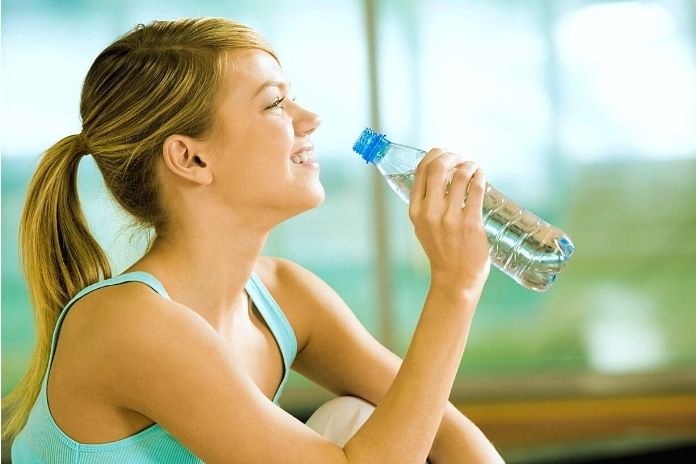Don’t forget to drink – especially in high heat. A nutritionist gives tips, Experts like to cite the so-called rule of three: Humans can survive three minutes without oxygen, thirty days without food, and three days without water. “This makes it clear how important the water supply is,”
Even those who drink too little for a few hours are at risk of headaches and fatigue. The need increases with physical activity. The higher the level of performance, the more fluid is required.
It is best to listen to your own body and have a drink if you feel thirsty. But how do you create a sufficient supply of fluids when you are not active, do not sweat, or feel thirsty? The essential tips and facts.
Why Drink Regularly?
Humans consist of around 60 percent water, which is the prerequisite for metabolism and detoxification. Regardless of the outside temperature, the body needs enough of it. Because not only in the summer heat but also during the cooler seasons, he loses many fluids through breath and sweat.
In addition, because we are currently mostly in warm interiors, the mucous membranes dry out quickly. You become more susceptible to pathogens, and the risk of infection increases. Every glass of water helps moisturize these sensitive areas in the nose and throat.
How Much Would You Like?
Our water requirement is one milliliter per kilocalorie of energy consumption. Expert Wagner recommends five to six glasses of 0.3 liters each. This corresponds to a daily intake of 1.5 to 2 liters, also recommended by the German Nutrition Society for adults. These guide values only apply to healthy people; patients with advanced kidney disease or heart failure should speak to their doctor.
Wagner suspects that women adhere to the recommendations less often. In his experience, some people consciously drink less so that they have to go to the toilet less often. “One of the reasons why it could be that women suffer from urinary tract diseases more often than men.”
When To Grab A Glass?
The previous recommendation not to drink any fluids before meals are now considered obsolete. On the other hand, it is essential to drink continuously throughout the day, especially before athletic and intellectual exertion. For example, pupils should be allowed to drink during class or exams. “This is the only way they can achieve their mental and physical optimum,” Wagner is convinced.
Is Juice Allowed?
Only with tap or mineral water can the body be supplied with fluids and minerals without calories. Experts, therefore, consider water to be the ideal drink. In contrast, fruit juice contains a lot of sugar. Thus – if at all – only enjoy it now and then and ideally strongly diluted.
Due to its high energy content, it is unsuitable as the sole thirst quencher. Smoothies – regardless of whether you mix them yourself or buy them – Wagner no longer counts as drinks at all. “They are more like a meal.”
Are Fruits And Vegetables Enough?
Numerous types of fruit and vegetables also contain plenty of water. However, meeting the one to two liters of daily fluid requirements with melons or cucumbers is challenging. Nevertheless, if you eat a lot of vegetables and fruit, you have to drink less.
The fresher the food, the more liquid a person absorbs from it. Wagner advises not to overestimate the water supply this way. In addition: Fruit contains a lot of fructose.
Purely A Matter Of Motivation
The excretions show, for example, whether you drink enough. Wagner: “The urine is an indicator.” The lighter, the more balanced the water balance. Dark urine, on the other hand, suggests a deficit.
Anyone who thinks they are drinking too little can keep a kind of diary documenting how much they eat and when. Keeping drinks within sight and drinking them at set times, with meals or continuously in the morning right after getting up, can also help.
A water supply in the car or a smartphone app reminds you that it might be time to raise your glass. The most reliable indication of this, however, is and remains quite simple: thirst.
Also Read: THE BENEFICIAL EFFECTS OF FLAXSEED ON HEALTH AND HOW TO PROPERLY CONSUME THEM

